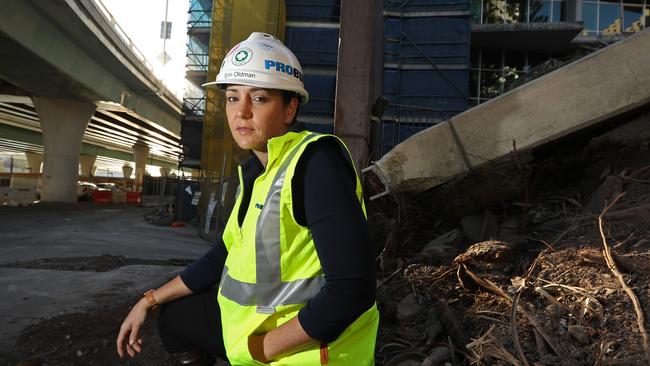Miners, builders have the nation’s highest suicide rates
Construction workers, miners and tradies have the highest suicide rates of any occupation in Australia.

Construction workers, miners and tradies have the highest suicide rates of any occupation in Australia, according to new data that reveals the blue collar crisis behind the nation’s fragile economy.
Data from the National Coronial Information System, commissioned by The Australian, shows lower-skilled labourers in mining and construction have a suicide rate double that of other occupations. Those sectors also experience more deaths by self-harm, despite evidence that a job is good for mental health.
Concerns about unexpected deaths in construction, in particular, have prompted companies and health organisations to establish support networks and encourage workers to help each other. Governments are also launching more suicide prevention initiatives in the workplace.
In the three years to the end of 2014, 239 construction and mining labourers died by suicide. Of the number recorded holding such jobs, 0.15 per cent, or 15 in every 1000, were not alive by 2015. That was almost double the suicide rate among skilled construction trades workers (0.07 per cent) who, with 261 deaths, had the highest number of deaths overall.
People working in blue-collar occupations, including farmers, experienced suicide more than any other workers, which experts put down to a myriad of factors including the number of young men and, sometimes, the lack of stability and support outside work. Of the 3738 suicides recorded by the NCIS over the period, all seemingly employed, just under 83 per cent were men.
Victorian Health and Medical Research Fellow Allison Milner has embarked on a four-year study of suicide among employed males, having examined the high rates in construction.
The University of Melbourne academic believes a “toxic cocktail” of work stressors and personal issues, such as relationship problems and substance abuse, is putting at risk men who by their nature are less likely to ask for help.
“In construction there’s a pretty dominant history of strong gender norms that aren’t particularly favourable to help seeking,” said Dr Milner, who also noted the stigma surrounding mental illness. “We also know that poor work is itself a risk factor, things like low job control, high job insecurity and high demands.
“For some men, who have things also going on outside of work, all of this is tied up together and hard to disentangle.”
Dr Milner is also academic director of Mates in Construction, a charity established to raise awareness of mental health issues, suicide and how to help or get help.
Erin Oldham, a community liaison officer with construction firm Probuild, had experience with loved ones dying by suicide or attempting to kill themselves and, in one case, a murder-suicide.
She now champions the Mates in Construction cause on building sites as a “connector” who helps people find help or offer help where it is needed.
Through such cultural change, men are not only speaking more openly, but proactively helping others in need.
“You need this awareness on site, it needs to be visible, it needs to be spoken about, it needs to become normal, business as usual,” Ms Oldham said.
With suicide, there is sometimes a risk of contagion, or flow-on suicides. Organisations such as Mates in Construction seek to initiate a positive spread of supportive behaviours.
In April, a young subcontractor at a site in Toowoomba killed himself, to the shock of workmates who had realised he was struggling. At his funeral, mourners identified two other at-risk workers, who were subsequently hospitalised for treatment.
The following weekend, an older scaffolder from a Brisbane site that Ms Oldham also worked on killed himself. The man had a history of depression and was found dead by his teenage daughter: with the outpouring of grief and self-reflection came a Mates in Construction response to help support other workers.
“Not long ago I got a call from someone from the Toowoomba site who was maybe a bit more difficult,” Ms Oldham said. “He apologised and told me he was really struggling and he didn’t realise how much he was struggling until he had a personal tragedy himself. Those conversations are definitely happening, change is happening.”
Governments are also finalising the next National Mental Health Plan, including suicide prevention initiatives.
If you or someone you know may be at risk of suicide call Lifeline (13 11 14), the Suicide Call Back Service (1300 659 467) or a doctor




